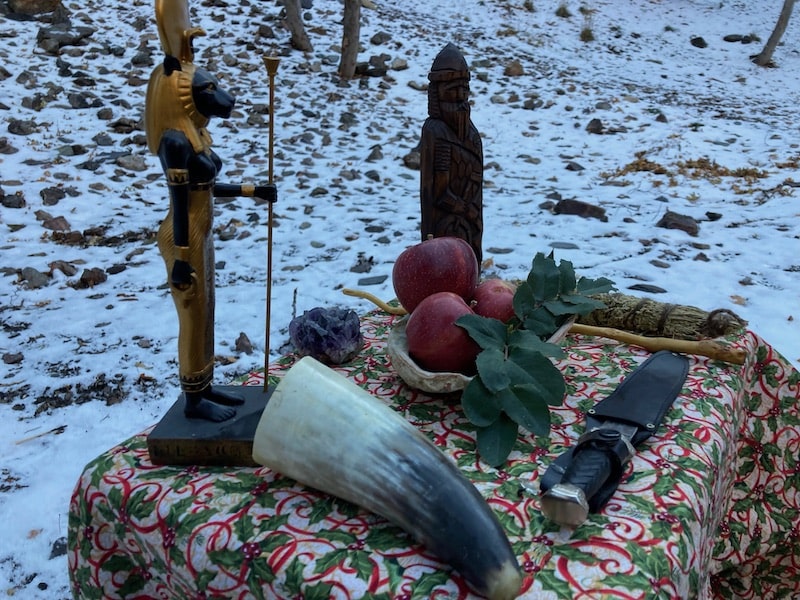
The Christmas season has arrived and with it an onslaught of holiday trappings that can be neither ignored nor escaped.
One might assume non-Christians would chafe at these annual intrusions, but Daniel Cureton, the president of the Pagan Society, just has the same gripe as most everybody ― it starts too early.
“If they had kept it to December it would be fine,” says Cureton. “The idea of Christmas is great.”
For Cureton, who created the Salt Lake City organization in 2009, extending the Christmas season as far back as October devalues the seasonal feeling.
As for Christmas itself? Cureton notes that the holiday is one of a number rooted in pagan history anyway.
“They just also happen to line up with Christian holidays because of the history of Christendom that is taking the old pagan holidays and incorporating them.”
This is the reason Christmas is celebrated on December 25 instead of April, says Cureton.
For the pagan community, the season is known as Yuletide. That phrase is, of course, familiar to anyone who’s been beseeched with “fa la la la las” by door-knocking singers.
The pagan community celebrates Yuletide in connection with the winter solstice, which occurs between December 20 and December 23. This year it falls on December 21.

The Pagan Society’s festivities would be familiar to most Christmas celebrators as well. Last year Cureton and his fellows marked the Yuletide with a potluck, some holiday wine, and a cozily lit fireplace. Of course, there was also the “calling in” of the spirits.
April Love-Saunders, who co-founded the group, doesn’t think their ceremonies should be that surprising to people accustomed to basic Christian rituals. She has attended a midnight mass where the priest used incense to cleanse around the altar.
“It was somewhat akin to what we do,” says Love-Saunders, who notes that her group uses incense and water to cleanse themselves.
Love-Saunders, who describes her spiritual journey as a “wandering,” has found kinship among people of many faiths. Within the pagan tradition there is a sense of community that is common to other religions, she says.
“That’s part of why people gather and have fellowships of all sorts,” she says. “Connecting with people of like mind and relaxing with people who feel like family.”
That sense of community is the reason that Cureton founded the Pagan Society, originally at the University of Utah. To the consternation of his Christian family, Cureton became interested in Druidry in his early 20s. After relocating to Salt Lake City from Provo, he found there was no longer an active pagan organization on campus, and the Pagan Society was born.
The group now meets regularly around the eight holidays it focuses on, which usually fall around what Cureton calls the quarters ― the two solstices and equinoxes that occur each year. Members comprise a variety of traditions, including those interested in Celtic, Egyptian, and Norse gods.
Pagans don’t proselytize, but Love-Saunders believes that there is a pull towards the old traditions now that we’ve moved away from agrarian lifestyles. Long before the birth of Christianity, gatherings celebrated the coming of the sun, marking the time as a group.
“That might be why people choose to follow the pagan path,” she says. “It’s like resetting the clock in a way.”
Christians and pagans should have respect for each other, Love-Saunders says.
“We’re all brothers and sisters and we each have a path up the mountain and it’s all the same mountain, as Buddha would say.”
RELATED STORIES
A Group of Volunteers Helps Christmas Happen for Underprivileged in Ogden, Utah
The Salt Lake’s Other Choir Performs this Holiday Season
The Main Street Divide: Remembering Main Street Salt Lake City of Christmas Past
How Ogden Trappers and Pioneers Celebrated Christmas
SUPPORT LOCAL JOURNALISM AND SUBSCRIBE TO PRINT MAGAZINE
Subscribe to Utah Stories weekly newsletter and get our stories directly to your inbox


